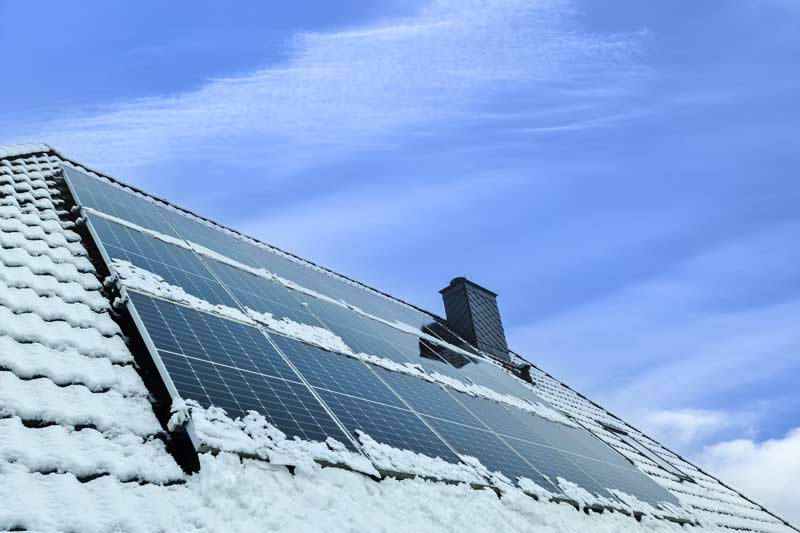Have you ever wondered how solar panels can work on cold and cloudy days? Well, solar panels continue to generate energy in cold weather due to their ability to convert sunlight into electricity, regardless of the temperature. Even in below-freezing weather, solar panels turn sunlight into electricity because they absorb energy from the sun’s abundant light, not its heat, and any diminished output during the winter months will primarily be due to heavy snow and shorter daylight hours. Cold climates are optimal for solar panel efficiency, as cool temperatures can keep solar panels running at their most efficient.
When sunlight photon particles hit solar panel photovoltaic cells, electrons in the silicon are put into motion, creating an electric current that is sent to a home’s electric distribution box to power essential items. A rechargeable solar battery can help store this electricity to use at night, during peak electricity usage, or when the grid goes down.
It’s important to note that if the panels are covered with a thick layer of snow, they will not generate energy. However, cold, sunny weather is good for panels, and winter months are good for solar energy production, as long as the panels aren’t covered by snow.
Overall, solar panels can thrive in winter weather, even with shorter daylight hours. Solar cells are semiconductors, and just like the CPU in a computer, they function more efficiently in cold conditions than in hot, meaning that panels will produce more power for each precious hour of sunshine during the short days of winter.
You can always reach out to our professionals to clear all the doubts you may have about solar energy. At Sun Up Zero Down, we use the best materials and resources to ensure your solar panel installation works the best way possible, for the longest time possible. If you’re in New Jersey or the surrounding areas, let us be your partner in beginning your solar journey.

